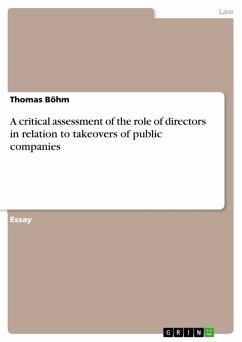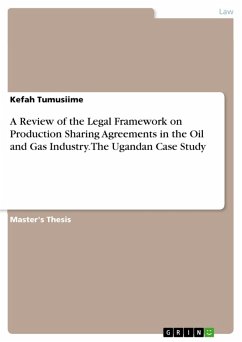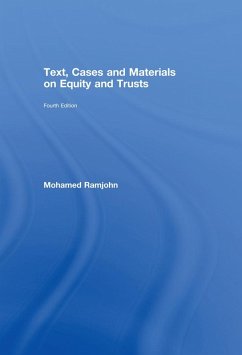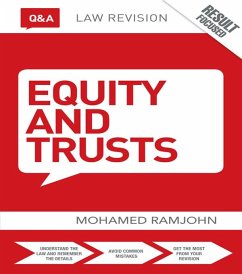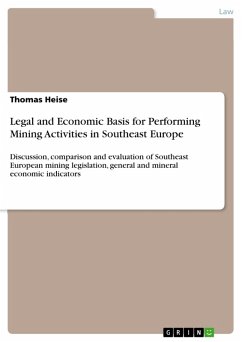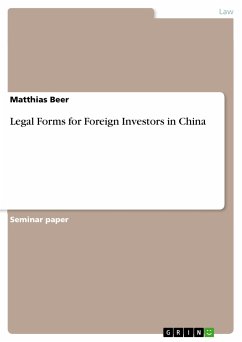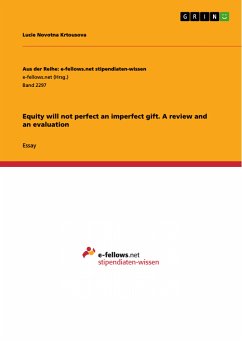
Equity will not perfect an imperfect gift. A review and an evaluation (eBook, PDF)

PAYBACK Punkte
0 °P sammeln!
Essay from the year 2012 in the subject Law - Civil / Private, Trade, Anti Trust Law, Business Law, grade: 65, Cardiff University (School of Law), course: LLB Module Trusts, language: English, abstract: The first part of this paper reviews and evaluates the change of the scope of the maxim that equity will not assist a volunteer and the second part looks at the recent shift in objectives underlying the maxim. The author will argue that the recent changes to the maxim are not underpinned by clear and rational objective which would unify the approach of the courts when considering whether to per...
Essay from the year 2012 in the subject Law - Civil / Private, Trade, Anti Trust Law, Business Law, grade: 65, Cardiff University (School of Law), course: LLB Module Trusts, language: English, abstract: The first part of this paper reviews and evaluates the change of the scope of the maxim that equity will not assist a volunteer and the second part looks at the recent shift in objectives underlying the maxim. The author will argue that the recent changes to the maxim are not underpinned by clear and rational objective which would unify the approach of the courts when considering whether to perfect an imperfect gift or not. The law regulating the constitution of trusts and gifts is governed by two equitable maxims which form two sides of the same coin: firstly, if the settlor has failed to constitute a trust, equity will not do so for him with the reference to the equitable maxim that equity will not perfect an imperfect gift; secondly, the would-be beneficiaries under incompletely constituted trust have no rights unless they have provided consideration which is in accordance with another equitable maxim that equity will not assist a volunteer. Since the judgement in "Milroy v Lord" and "Rose v Inland Revenue Corms" the area of law was "tolerably clear" until the recent developments in "T. Choithram International S v Pagarani" and in "Pennington v Waine", which promoted generous interpretation of the above mentioned maxims.
Dieser Download kann aus rechtlichen Gründen nur mit Rechnungsadresse in A, B, BG, CY, CZ, D, DK, EW, E, FIN, F, GR, HR, H, IRL, I, LT, L, LR, M, NL, PL, P, R, S, SLO, SK ausgeliefert werden.




